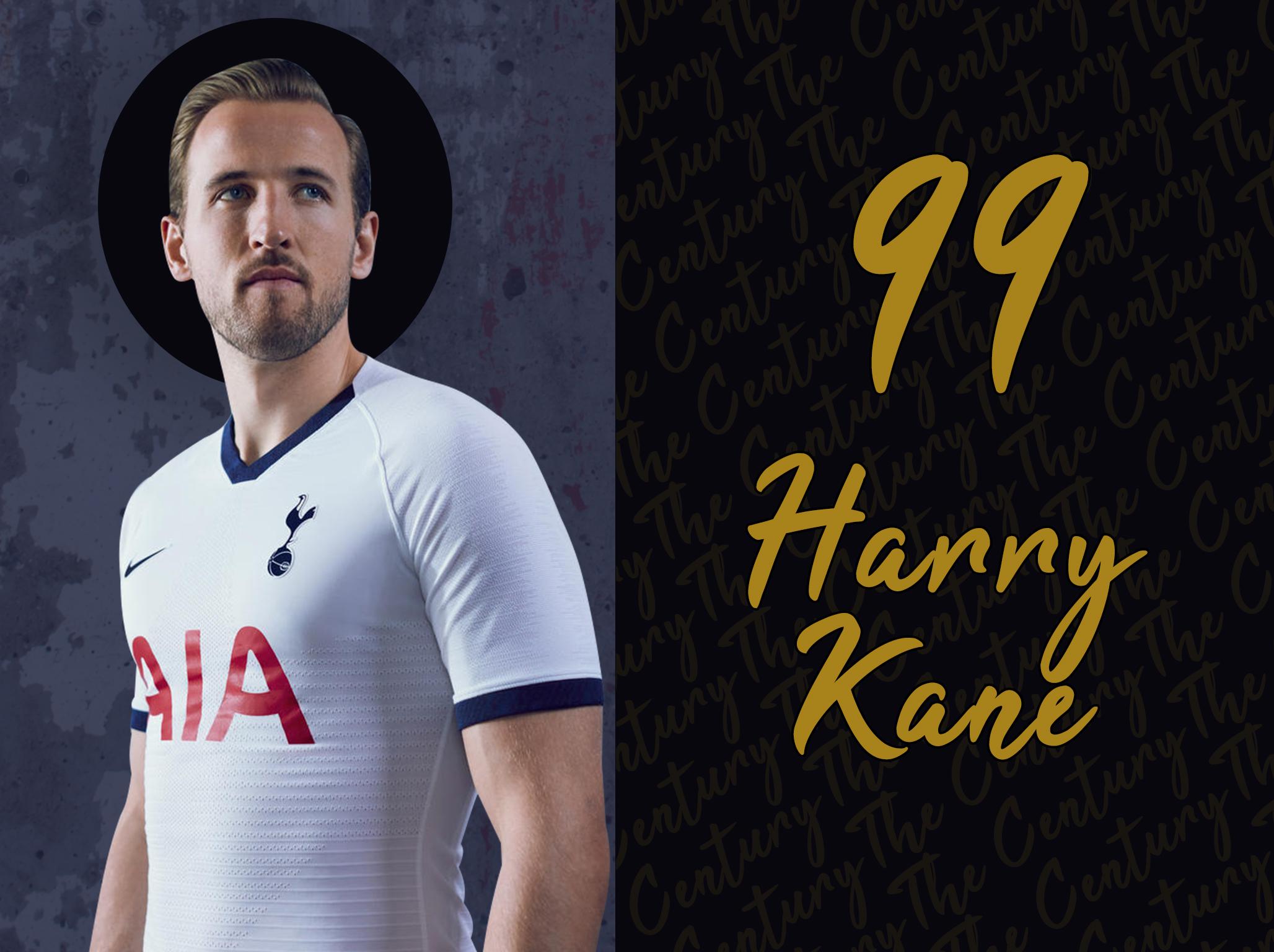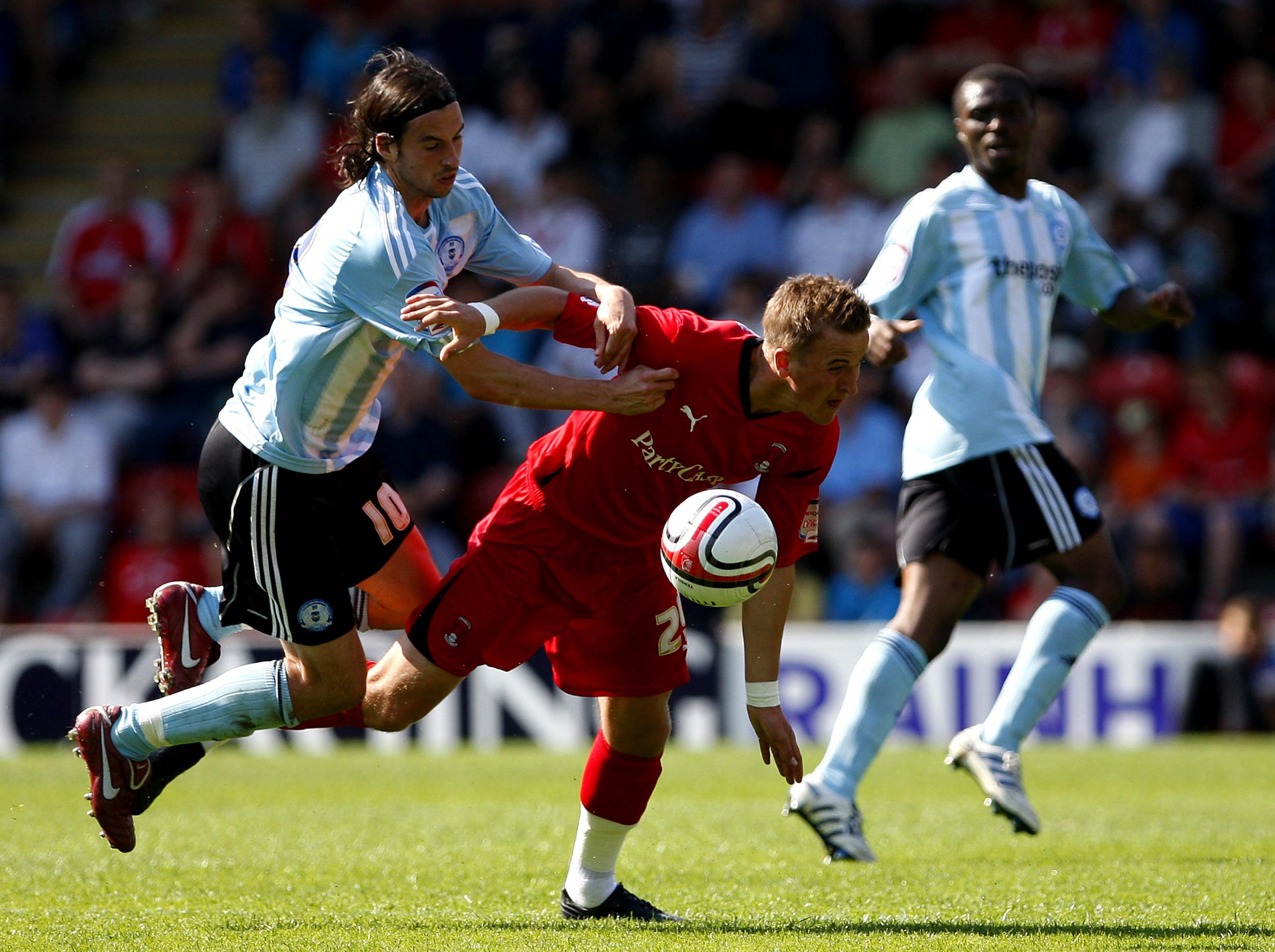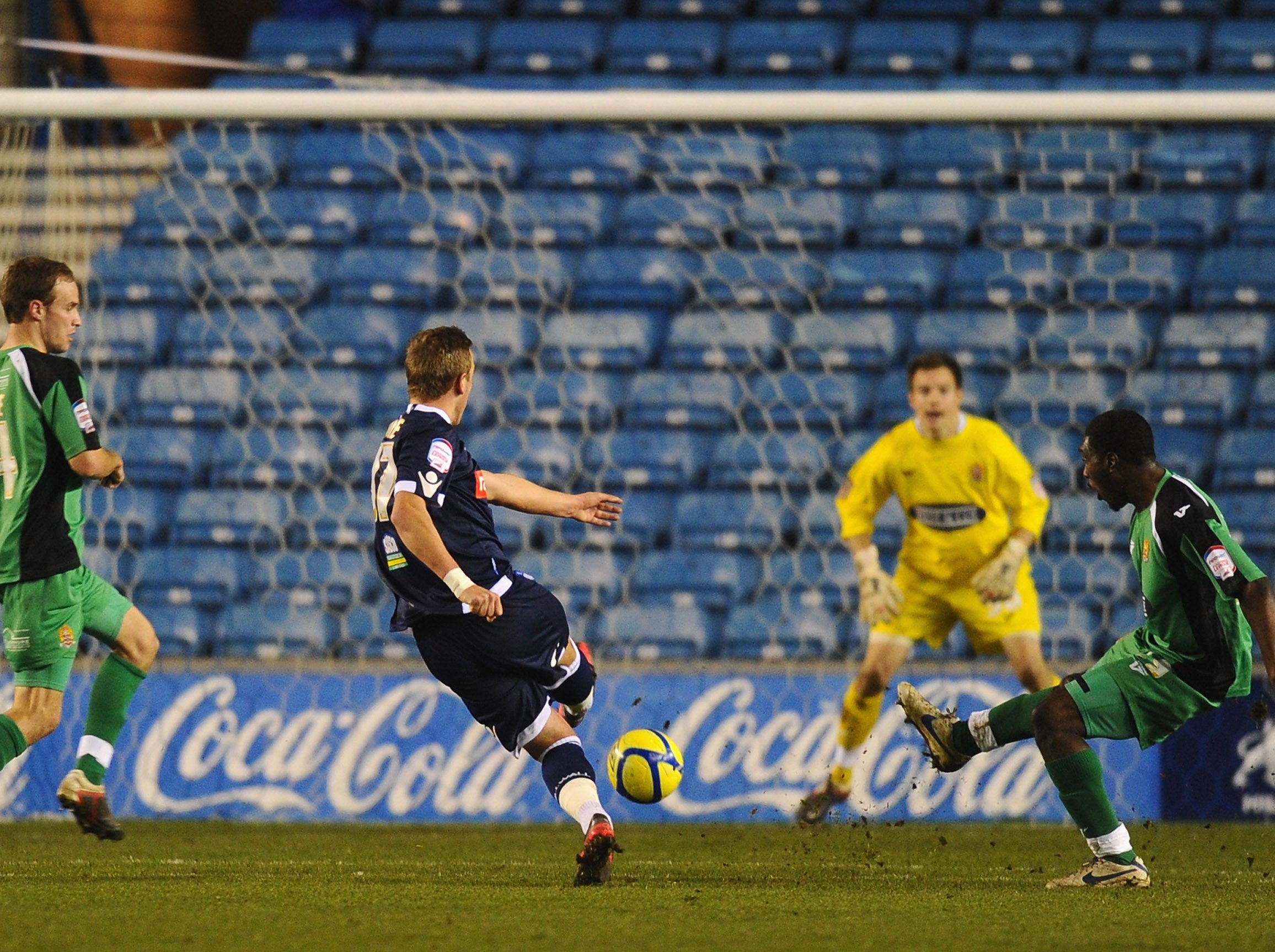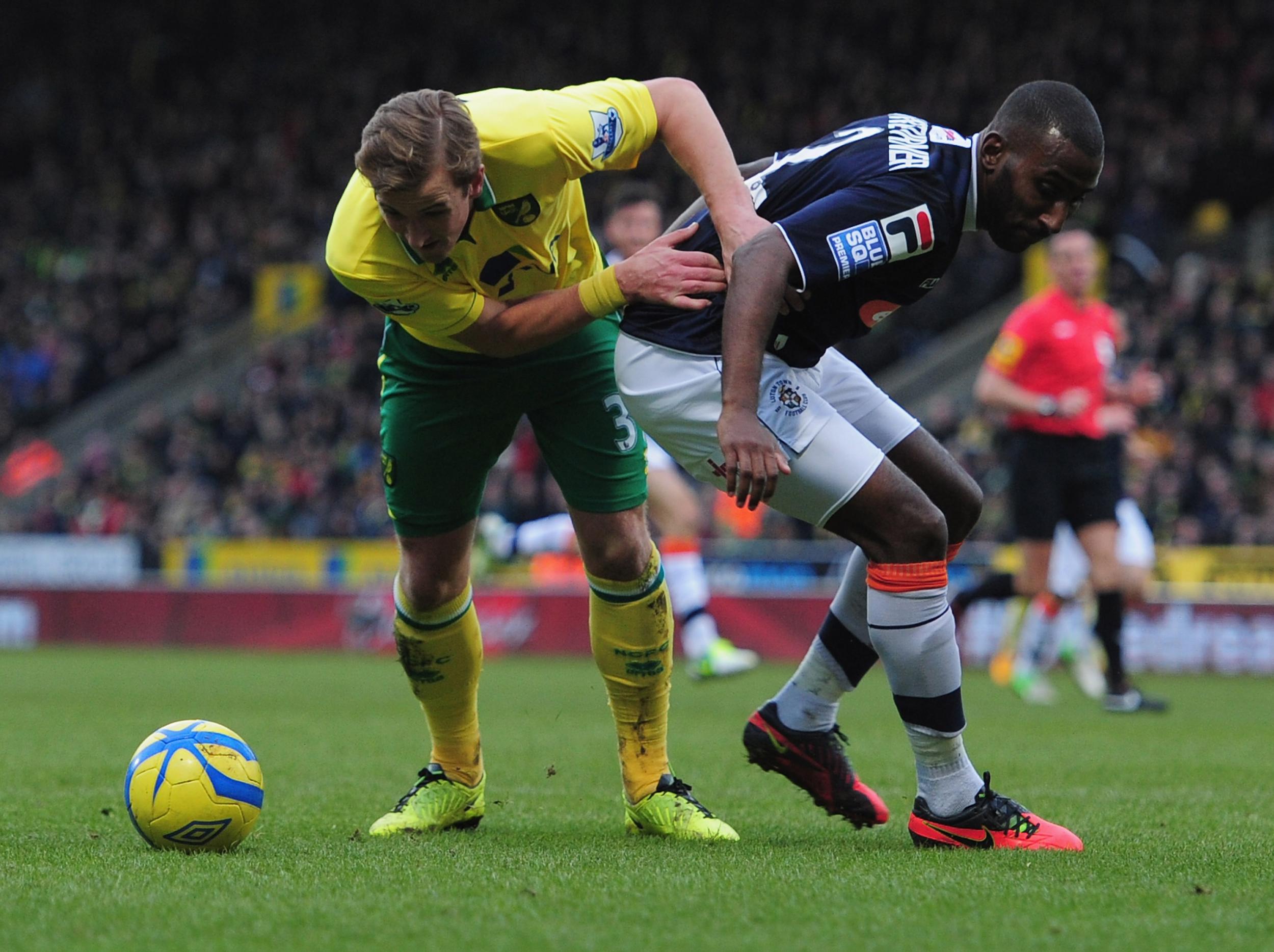How Harry Kane became one of the world’s best ... in the words of those who knew him when he wasn’t
The Century: This week, The Independent is counting down the 100 best players of the last twenty years. England captain Kane places 99 on our list

Your support helps us to tell the story
From reproductive rights to climate change to Big Tech, The Independent is on the ground when the story is developing. Whether it's investigating the financials of Elon Musk's pro-Trump PAC or producing our latest documentary, 'The A Word', which shines a light on the American women fighting for reproductive rights, we know how important it is to parse out the facts from the messaging.
At such a critical moment in US history, we need reporters on the ground. Your donation allows us to keep sending journalists to speak to both sides of the story.
The Independent is trusted by Americans across the entire political spectrum. And unlike many other quality news outlets, we choose not to lock Americans out of our reporting and analysis with paywalls. We believe quality journalism should be available to everyone, paid for by those who can afford it.
Your support makes all the difference.He barely spoke at first, an 18-year-old out of his comfort zone, thrown into an unfamiliar dressing room full of senior professionals he had never met. “He was a very quiet lad,” Millwall’s captain at the time, Alan Dunne, reflects now. “He didn’t say much. He was very shy.”
Instead, Harry Kane decided to make his acquaintance with his new team-mates out on the football pitch. “It was a long throw from the goalkeeper,” Dunne recollects of a cold winter’s training session that still burns bright in his memory. “I misjudged it slightly and the ball went over my head. And the next thing I know, he had volleyed it. Struck it in one clean movement. You know that Marco van Basten goal, in the Euro 1988 final, against the Soviet Union? It was like that. Straight into the top corner.”
Dunne was by that point 29 years old. He had played more than 300 professional matches for Millwall, across two different divisions. And he had seen dozens of loan players come and go. Yet he will always remember 2 January 2012. “It was one of the greatest goals I have ever seen in my life,” he adds. “And it was only his second day at the club.”
***
Not every loan deal whisking a starry-eyed teenager from an elite academy to the blood and thunder of the Football League can be meticulously researched. The hastily arranged moves can be the making of young players. More often than not, they break them. But, in the winter of 2011, Leyton Orient had done their homework. “Our training ground was very close to Tottenham’s, so we always had a very good idea of the kind of young players they had coming through,” Russell Slade, manager between 2010-2014, tells The Independent. “And we already knew that he had serious potential.”
Kane had been impressing the right people. The season previous, he scored 18 goals in 22 appearances for Alex Inglethorpe’s Under-18 team, attracting the attention of Harry Redknapp, who twice named him on his first-team bench. But his path to senior football was blocked by the likes of Jermain Defoe, Peter Crouch, Roman Pavlyuchenko and Robbie Keane. And so, on 7 January, he agreed to make the five-mile journey from White Hart Lane to Brisbane Road on a short-term loan.
It was his first spell away from Tottenham Hotspur since the age of 11. Kane’s long and winding journey through the depths of English football was about to begin.
Slade wanted to know what the quiet kid with a big reputation was made of. So he threw him in at the deep end. One week after arriving at the club, Kane was handed his first-team debut, replacing the 36-year-old veteran Scott McGleish away at Rochdale. “I don't know what colour boots he had on, but let me tell you, the pitch was that much of a quagmire that by the time he came off it didn’t matter, because you couldn’t see his feet. It was an incredible experience for him and I am sure it really benefited him in the long run.”
In the muddy trenches of third-tier football, Kane was forced to learn new skills to survive. Key to his current success is his unrelenting physicality — which helps to compensate for his relative lack of pace — but as a skinny teenager playing against grown men, Kane had to locate slivers of attacking space through different means.
“He hadn’t yet filled out physically and was probably eight stone wet through, but he could still lose somebody in a telephone box,” Slade explains. “And that’s because his speed was in his head. He would lose defenders by a yard not through raw pace, but by thinking. If the defender marking him just peeked towards who was crossing the ball — even for a split second — he would lose them. Even at that age. He was so intelligent like that.”

His uncanny ability to disappear into a defender’s blindspot was something Dunne would learn in dramatic fashion on Millwall’s Calmont Road training ground some twelve months later. He had done well on loan at Orient, scoring five times in 18 League One appearances and earning the trust of Slade, but it was at Millwall that his development really began to accelerate.
Kane may have kept himself to himself off the football field, a polite kid who would quietly slip away after training sessions, but playing regularly at The Den did not faze him. Twenty-seven appearances in all competitions. Nine goals. And winner of Millwall's Young Player of the Year award. The boy was growing into a man.
“He was still a quiet lad even though he had been to Orient before he had come to us,” Dunne says. “But he was a good lad, an honest lad, and you could tell that he had been brought up well. Sometimes you get lads who come in from other clubs who think that they are better than it all. But he knew what he wanted to do and did his talking on the pitch.
“The Den can be an intimidating ground and players can freeze, especially young kids who come in and don’t realise that the level you are playing at is actually very high and very competitive. But he had a special talent. You could just see it. He was a real old-fashioned centre-forward and the fans loved that, and even though he was never the quickest he had the brain. He had the intelligence and maturity of a player with so much more experience.”

Kane returned to north London with very real hopes of breaking into the club’s first team under new manager André Villas-Boas. His summer started well enough, with a hat-trick against Southend United in a pre-season friendly and his first taste of Premier League football, as a late second-half substitute against Newcastle United. But following the arrivals of Emmanuel Adebayor and Clint Dempsey, for a combined £11m, the club decided to send him back out on loan.
One week later, on 31 August, Kane joined Premier League rivals Norwich City for the rest of the 2012/13 campaign. Things went wrong almost immediately. He fractured the fifth metatarsal in his right foot on his second appearance, a Capital One Cup match against Doncaster Rovers, and was sent back to Tottenham to undergo his rehabilitation. He returned to Carrow Road after Christmas, only for Spurs to almost immediately recall him when it became clear they were not going to be able to sign a new striker in the January market.
Kane played just 226 minutes of competitive football for Norwich, failing to score a goal. But he nevertheless left a lasting impression in East Anglia.
Leon Barnett, an experienced Premier League defender who joined Norwich from West Brom, often found himself pitted against the teenager in training. And, despite Kane’s numerous struggles, Barnett found it impossible to assert his dominance over the 19-year-old.

“I would say I was always able to block a fair amount of shots that were hit towards goal, but I so rarely had the chance to block Kane’s,” he tells The Independent. “He was always taking such awkward shots. He would shoot early, and the ball would squirm through your legs, or deflect off your right toe or something. I could just never get to grips with him. I was never able to master where he was going to shoot, which meant I couldn’t defend properly against him.
“He wasn’t quick. He wasn’t big. But he was difficult. And if you gave him the tiniest bit of space, he would kill you. To be honest, the level I was playing it, I just couldn’t defend against him. And it’s funny now, because not many defenders in the entire world can defend against him. He is one of the most deadly strikers in Europe.
“But, to be honest, it was a frustrating time for him. And it was unlucky for us, because we never got to see the full potential of Harry Kane.”
For all his potential, Kane returned to Tottenham with his tail between his legs. Yet he did not stick around for long. Ignored by Villas-Boas (“I was not the best coach for Harry Kane,” the Portuguese would later reflect), Kane agreed to his fourth final loan deal. In February, he joined Nigel Pearson’s Leicester City, to assist the club’s push for promotion.

“When he came to us, he was actually subbed quite a bit,” remembers Paul Konchesky, an England international and Leicester City regular ever since his move from Liverpool, in 2011. “But he chipped in and worked so hard on his finishing every single day in training.”
It was to prove another frustrating spell for Kane, who only scored twice as Leicester lost out to Watford in the Championship play-offs, but a player of Konchesky’s immense experience recognised that Kane was a young loan player worth taking an interest in. “It can be tough for the loanees and often they keep their head down,” he says. “But you never know, maybe a loan move will turn into a permanent deal. And I am sure, looking back, that Leicester would have liked to sign Harry Kane. As a senior player, it was your responsibility to help look after them. Especially somebody like Harry, who absolutely everybody could see worked very hard and wanted to be in the team. It was impossible not to want him to do well and be a part of it.”
Kane’s fourth loan move was to prove his last. The following season he was kept at White Hart Lane, eventually breaking into the first team under interim manager Tim Sherwood. He has never looked back. But those whose paths briefly crossed with the Tottenham talisman and England captain often do.
“Look, I never thought he would go on to do everything that he has achieved quite this quickly,” adds Dunne, almost eight years on from the best goal he has ever witnessed. “But, yeah. I guess he was always special.”
The Century
This week, we are counting down the 100 greatest players of the 21st century, revealing 20 per day until the winner is announced on Friday.
We asked 10 of our football writers to select 50 players, with each pick awarded points contributing to a final score.
Join us throughout the week for a wide selection of exclusive interviews and features, as we celebrate the best players of the last twenty years.
Join our commenting forum
Join thought-provoking conversations, follow other Independent readers and see their replies
Comments